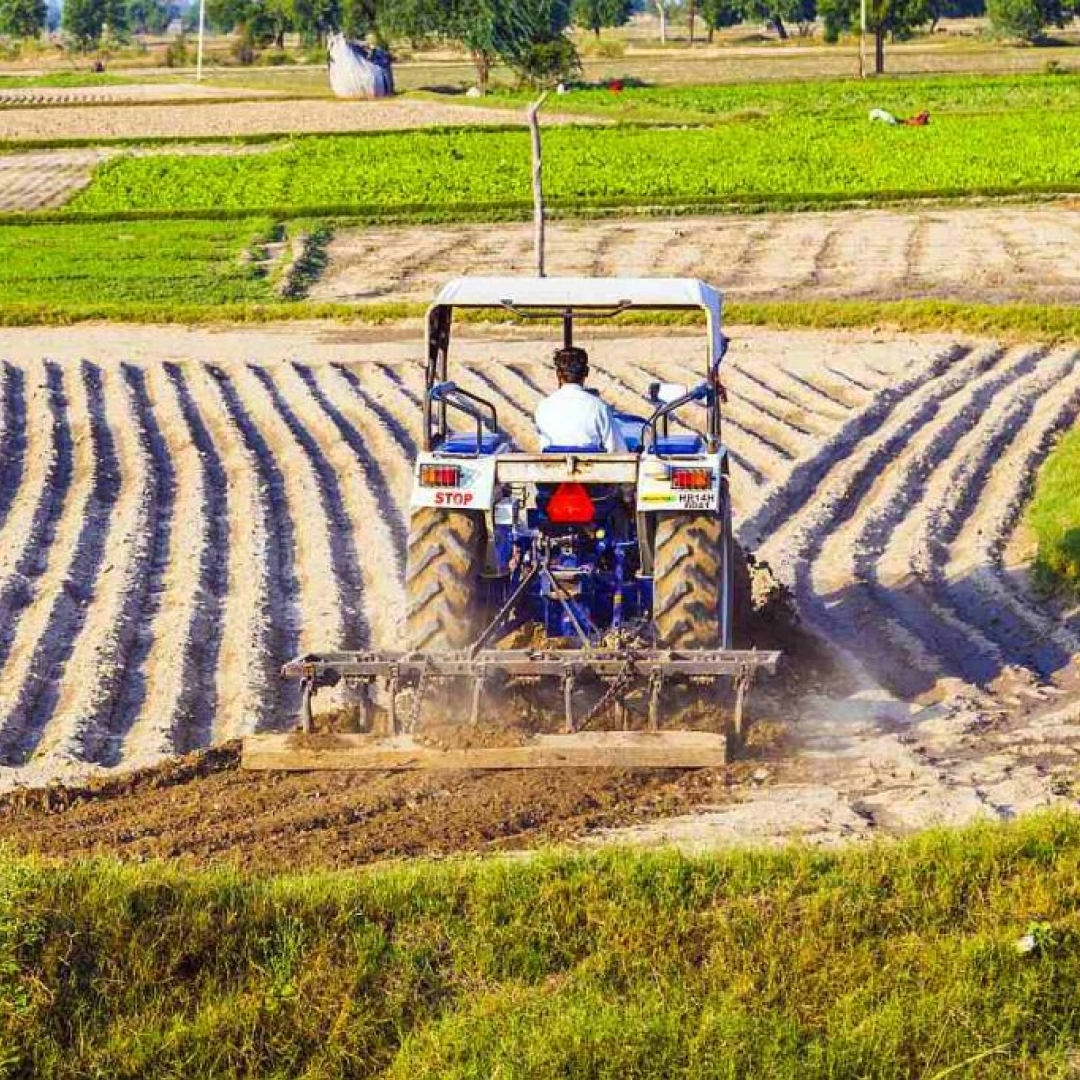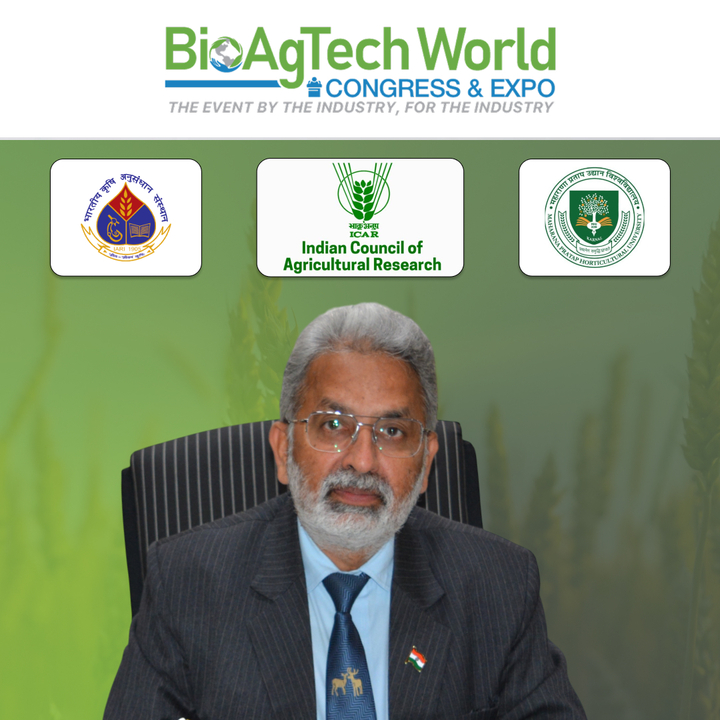
The sixth BioAgTech World (BAW) Congress is set to convene in Delhi, uniting global leaders in the BioAg sector to share insights, innovations and strategies for a sustainable agricultural future. Organized by Global BioAg Linkages (GBL), this prestigious event has garnered strategic institutional support from the host Indian Council of Agricultural Research (ICAR) and co-host the Indian Agricultural Research Institute (IARI), Maharana Pratap Horticultural University (MHU), Karnal and Agrinnovate India.
INSTITUTIONAL PARTNERS
Indian Council of Agricultural Research (ICAR)
The Indian Council of Agricultural Research (ICAR) is the apex body for coordinating agricultural research and education in India. As a national leader in the agricultural sector, ICAR plays a pivotal role in fostering innovation, improving productivity and addressing the challenges of food security, sustainability and climate change. Its extensive research portfolio spans everything from crop and livestock improvement to soil health, water management and agroforestry.
National Agriculture Research System under ICAR has a vast network of research institutes, agricultural universities and extension services that empower farmers across the country with the latest technological advancements and research-backed practices. This not only boosts agricultural productivity but also builds resilience in the sector. Through its contributions to policy formulation and advisory services, ICAR guides the development of effective agricultural strategies for India, ensuring a sustainable and globally competitive farming landscape.
ICAR also plays a key role in policy formulation, providing scientific advice to the government to shape agricultural strategies and programs. Through its educational and capacity-building initiatives, ICAR nurtures the next generation of agricultural scientists and professionals, ensuring that India’s agriculture sector remains innovative, sustainable and globally competitive. With a forward-thinking approach, ICAR remains at the heart of India’s agricultural evolution.
Indian Agricultural Research Institute (IARI)
The Indian Agricultural Research Institute (IARI), located in New Delhi, is India’s premier agricultural research institution under ICAR, renowned for its contributions to scientific research, education and agricultural innovation. As a leading hub for agricultural excellence, IARI has played a pivotal role in transforming Indian agriculture through groundbreaking advancements in crop improvement, plant protection, soil science and agricultural biotechnology. Moreover, it also emphasizes utilization of plant genetic resources, including conservation of agriculturally important microbial, cyano-bacterial and insect resources; producing efficient, productive and stable genotypes of crops, especially hybrids, and improving bioenergetics.
IARI’s research endeavours focus on addressing the evolving challenges faced by the agricultural sector, such as climate change, food security and sustainable farming practices. By developing high-yielding, disease-resistant crop varieties and promoting integrated pest management techniques, IARI supports the growth and sustainability of Indian agriculture.
Murthal Horticulture University (MHU)
Maharana Pratap Horticultural University (MHU), Karnal, is a premier institution dedicated to excellence in education, research and outreach in the field of horticulture. The university strives to equip students with advanced knowledge and skills through innovative teaching methodologies and practical training programs, preparing them to meet the challenges of modern agriculture and horticulture.
MHU is at the forefront of research, driving advancements in crop diversification, sustainable farming practices and the development of climate-resilient horticultural systems. By integrating cutting-edge technologies and traditional practices, the university contributes to enhancing productivity, boosting the horticultural economy and ensuring environmental sustainability.
Beyond academics and research, MHU plays an active role in community development by providing extension services, training programs, and technical guidance to farmers and industry stakeholders. Its collaborative initiatives with national and international institutions further its mission of transforming the horticulture sector into a dynamic, sustainable and globally competitive industry.
Agrinnovate India Ltd.
Agrinnovate India, the commercial arm of the Indian Council of Agricultural Research (ICAR), plays a crucial role in translating scientific research into practical applications for the agricultural sector. By bridging the gap between research and industry, Agrinnovate ensures that innovative agricultural technologies and solutions reach the farming community, ultimately promoting sustainable practices and boosting productivity across the country.
The organization focuses on the commercialization of cutting-edge agricultural technologies, providing farmers and industry stakeholders with access to the latest advancements in crop protection, biotechnology and resource management. Agrinnovate also fosters growth in the BioAg sector through strategic public-private partnerships, enabling the development, transfer and scaling of agricultural innovations.
With its strong emphasis on collaboration and innovation, Agrinnovate India is instrumental in driving the growth of India’s agriculture industry, supporting the nation’s transition to more sustainable and resilient farming practices. By connecting research, industry and farmers, Agrinnovate plays a key role in strengthening the agricultural ecosystem and ensuring the long-term success of India’s agricultural landscape.
“The BAW Congress is certainly a significant event aiming to provide the vibrant platform for connecting stakeholders in the BioAg sector across the globe to share insights, innovations and strategies for a sustainable agricultural practice in the future. It is also likely to provide the insight to the various stakeholders on existing advancement including future of bio formulation and its role in transforming the face of agriculture in the Amritkal 2047.
All the stakeholders including farmers, industry, research organization, regulatory bodies and policymakers shall together deliberate on all the all the aspects for better adoption of bioformulation in agriculture practices including their innovation, regulation and guidelines policy and use. The advancement in precision agriculture, regulatory frameworks and the incorporation of nanotechnology will further enhance their effectiveness. With continued research and development, bioformulations are expected to shape the future of agriculture and environment sustainability.”







Leave a Reply